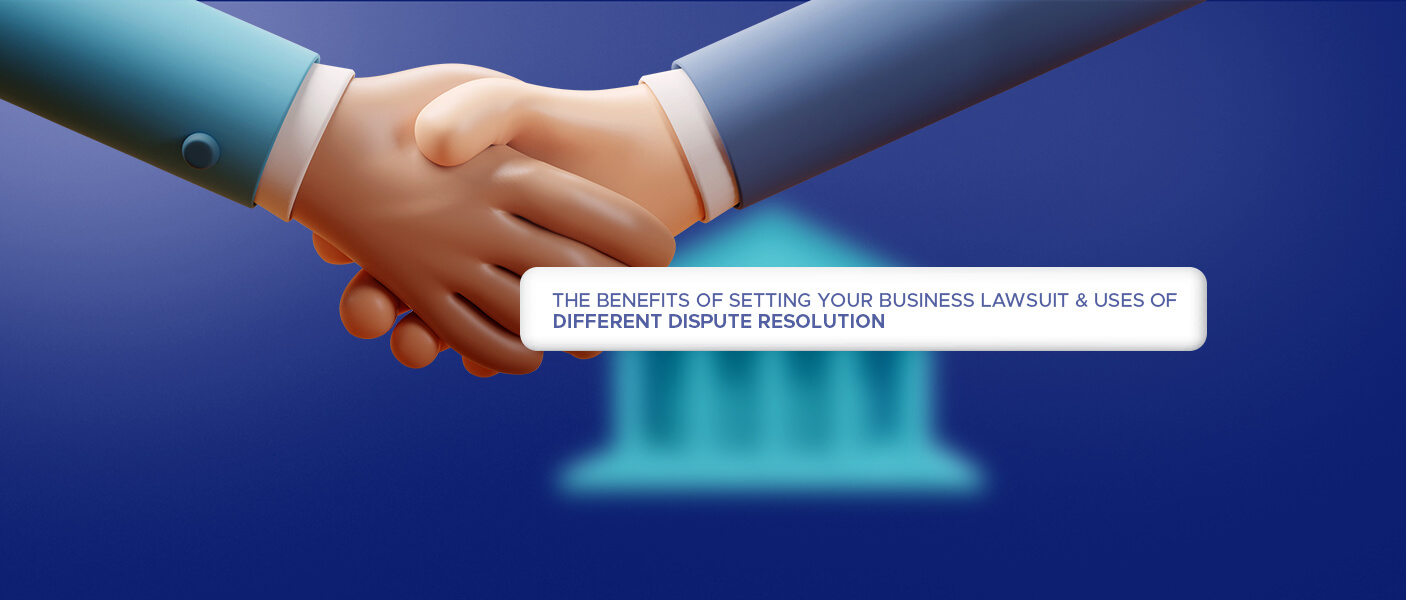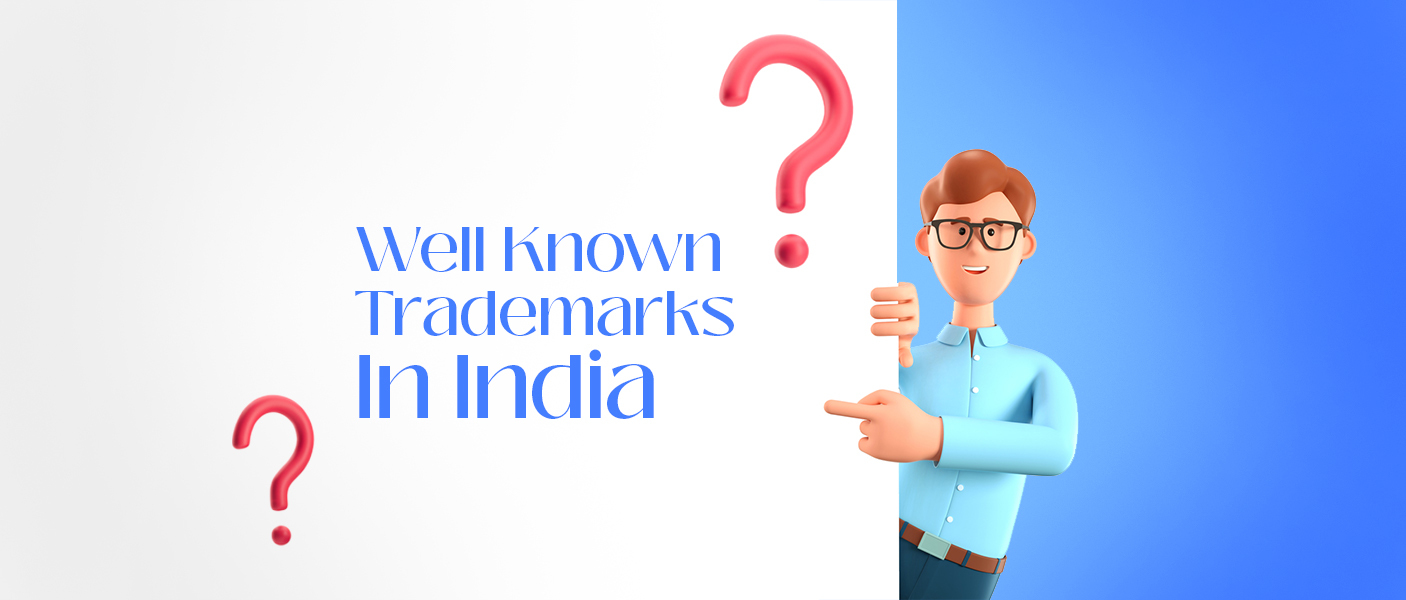Advantages of Out of Court Business Settlements & Uses of Alternative Dispute Resolution
February 6, 2023 By Dinesh ParmarWould you like to go on and on with “tareekh pe tareekh” for your business dispute or put an end to the matter by agreeing to a settlement out of the court? Although it depends upon the seriousness and depth of the case, we would like to make you aware of some of the benefits of settling business disputes out of the court along with Alternative Dispute Resolution (ADR) and their uses.
To Take it to the Court or Settle Outside?
There’s no business without disputes. Be it a family-run or a giant corporate, disagreements are a part of running a business and it keeps occurring from time to time. While some are just heated arguments that cool down in a matter of time, some turn into cases that are then dragged to the court. What happens after that? The lawsuit undergoes trial after trial and the matter stretches unnecessarily and becomes complicated.
So, does that mean you should avoid filing a business lawsuit no matter how serious it is? No, you must but, if a matter can be settled out of the court by both parties with their consent, then guess what? There are a lot of advantages to settling a lawsuit rather than the damages you get by running after trials. Therefore let’s explore the benefits of settling business disputes out of court.
Potential Benefits of Negotiating a Settlement
The benefits apply both ways whether you are the one filing the business lawsuit or the one being sued; except for some differences. Whatever the scenario may be, it is advisable to run through an experienced business attorney for specific advice regarding your situation first, before agreeing to any settlement. Keep in mind that a settlement cannot be forced and both parties must mutually agree to it. So, without any further adieu, here are the advantages of settlement of disputes between businesses out of court.
1. Time & Cost Savings
We all know that courts are overflowing with cases and many trials are still awaiting verdicts for years. So you can imagine how many years will pass by once you decide to convert your dispute into a business lawsuit. You will not only waste your precious years working with your attorney on collecting evidence, determining strategy, and appearing before the court but will also spend a lot of your savings after it since trials are costly affairs.
2. Faster Resolution & Guaranteed Compensation
If you think taking the matter to the court will help you get it resolved faster, then keep dreaming because the judicial system is already overloaded and it cannot hold a trial for every lawsuit that gets filed. So, be ready to spend years chasing it where there is even no guarantee that victory will be yours. In short, all that time and money you invest in fighting the trial may end up with neither you getting justice nor compensation. On the contrary, you will have to empty your pockets more than what you lost.
Whereas by opting for an out-of-court settlement, your dispute will not only get resolved within a short time but you are also guaranteed to receive a payout. You will only be required to make the move to the court if the party that agreed to settle accounts goes back on their promise.
3. Business Privacy
The moment you take your business dispute to the court, it becomes a public matter because, for the most part, court trials are public records and can be accessed by anyone, meaning anything submitted to the court, such as motions and evidence, can be looked up by anyone. On top of that, going to court is such a daunting experience that even if you win the case, the information that came to light can taint your business long into the future.
It may also happen that to make the case stronger, the other party may dig up your business-related details so much that things may become personal and you may feel invasive. In fact, the chances of some people issuing hurtful judgments about you and your business without even knowing the full story are also higher which will cause you more harm than you already have. Thus, settling a lawsuit outside the court will help you maintain your business’ privacy and keep sensitive trade secrets, potentially embarrassing details, and other information out of the public eye.
4. Get Away From the Strain and Stain
Once you decide to pursue the litigation route in court, be prepared - to suffer from the emotional strain and live with the stain that the courtroom drama will imprint on your business as well as your identity. It is not easy to escape from the taunts and stares of people once the trial begins. It will drag you down by all means - physically, emotionally, financially, and socially. So, it is better to settle your business lawsuit out of court than to invite unnecessary stress into your life.
Now, you might be thinking, is there only one technique to resolve a conflict without a trial? Well, that’s where Alternative Dispute Resolution (ADR) comes into the picture.
What is Alternative Dispute Resolution (ADR)?
Alternative dispute resolution (ADR) refers to the different ways people can settle their disputes without a trial, privately and confidentially, and without courtroom litigation. It is the cheapest yet fastest way to settle a lawsuit rather than opting for the stressful traditional court proceedings which go on for years.
ADR allows the parties to come up with more creative solutions that a court may not be legally allowed to impose and hence are increasingly being utilized in disputes that would otherwise result in litigation, including high-profile labor disputes, consumer issues, divorce actions, neighborhood, and personal injury claims. ADR involves various processes and techniques of conflict resolution without litigation and they are as follows:
1. Negotiation - Usually the first and the most common method of alternative dispute resolution, negotiation is a communication process in which both parties discuss, identify concerns, explore options, and try to resolve the conflict without the intervention of any third party and with the object of arriving at a negotiated settlement to the dispute. It is a non-binding procedure and a voluntary exercise that doesn’t have any statutory recognition as it is more like a self-counseling between the parties who have control over the outcome and procedure.
Negotiation works best for disputes related to business, non-profit organizations, government branches, legal proceedings, among nations, and in personal situations such as marriage, divorce, parenting, and everyday life as there is a possibility of achieving wide-ranging solutions, and maximizing joint gains.
2. Mediation - Mediation is nothing but negotiation carried out in the presence of an impartial person called a "Mediator" who assists both parties in reaching a mutually acceptable resolution. Unlike the judge, the mediator has no power to impose an outcome on disputing parties but their involvement alters the dynamics of negotiations.
In fact, mediation is practiced in villages before even The Arbitration and Conciliation Act, of 1996 was framed. Mediation proves to be pretty much useful in settling disputes that arise among family members, neighbors, or business partners because in such cases there is a relationship that both parties want to preserve and the involvement of a neutral third party makes it easier for them to reach an unbiased conclusion.
Although mostly mediation is informal, where the mediator is a friend, family member, or trusted advisor which both parties agree on and who brings some form of expertise to bear on the situation, it can also be formal, where the parties hire a professional, neutral third party who is trained in negotiations. In either case, the purpose of a mediator is to help the parties find a mutually acceptable resolution than pointing out who is right or wrong.
3. Conciliation - There is a very fine line of difference between mediation and conciliation. Whereas in mediation, the mediator simply listens and helps both parties communicate, in conciliation, the conciliator provides parties with a proposal to resolve the issue, which the parties are free to accept or reject.
The presented proposal is non-binding and the negotiations can be carried out until the parties arrive at a mutually pleasing settlement. Although formal agreements can be made legally binding following conciliation, as with mediation. If both parties accept the settlement document drawn by the conciliator, then it shall be final and binding on both.
4. Arbitration - A form of Alternative Dispute Resolution that is more formal than negotiation, mediation, or conciliation, and can look more like litigation, arbitration is used when disputing parties agree to have someone else decide the outcome. A neutral person called an "arbitrator" is appointed by both parties who then hears the arguments and evidence from each side to come to a conclusion. It is less formal than a trial and the rules of evidence are often relaxed but the objective of it is to arrive at a fair resolution through an unprejudiced tribunal, speedily and in a cost-effective manner.
Both parties submit their dispute to an arbitral tribunal where the arbitrator makes a decision (an “award”) on the dispute that is binding on the parties. There are two kinds of arbitration. In binding arbitration, the arbitrator’s decision is final and there is generally no right to appeal. While a nonbinding arbitration allows the parties to challenge an arbitrator's decision in court if they disagree.
5. Lok Adalats - Lok Adalats (Peoples' Courts) is a statutory organization under the Legal Services Authorities Act, 1987. It is an old form of adjudicating system prevalent in ancient India whose validity has not been taken away even in the modern days too. It is one of the components of the Alternative Dispute Resolution (ADR) system where disputes/cases pending in the court of law or at the pre-litigation stage are settled/ compromised cheaply and quickly.
It is a forum for discussion that is provided by the people themselves or by interested parties, such as social activists and legal aid providers, and public-spirited people from various walks of life. From mutation of the land case, compoundable criminal offenses, family and land acquisition disputes, business disagreements, and encroachment on forest lands, to motor accident claim, cases of all nature are resolved in Lok Adalat by facilitating negotiations in the presence of a judicial officer.
The award (decision) made by the Lok Adalats is considered final and binding on all parties. There is no provision for appealing the Lok Adalat award if the parties are not satisfied with its results. However, in exercising their right to litigate, they are free to initiate litigation by contacting the court of appropriate jurisdiction by filing a case by following the required procedures.
Conclusion
Going in and out of court for a business dispute is not only costly and stressful, but it will also rob you of your image and good opportunities. Hence, if a dispute is not a serious issue, agreeing to an out-of-court settlement is the best thing to do to end the matter as soon as possible and move on with the compensation that you receive for your damage and focus on your present and the future rather than wasting your time fighting a clueless battle.
You can either decide upon an Alternative Dispute Resolution method yourself or seek the help of an expert in such matters as the Parker and Parker Co. LLP to get it done hassle-free and professionally.






